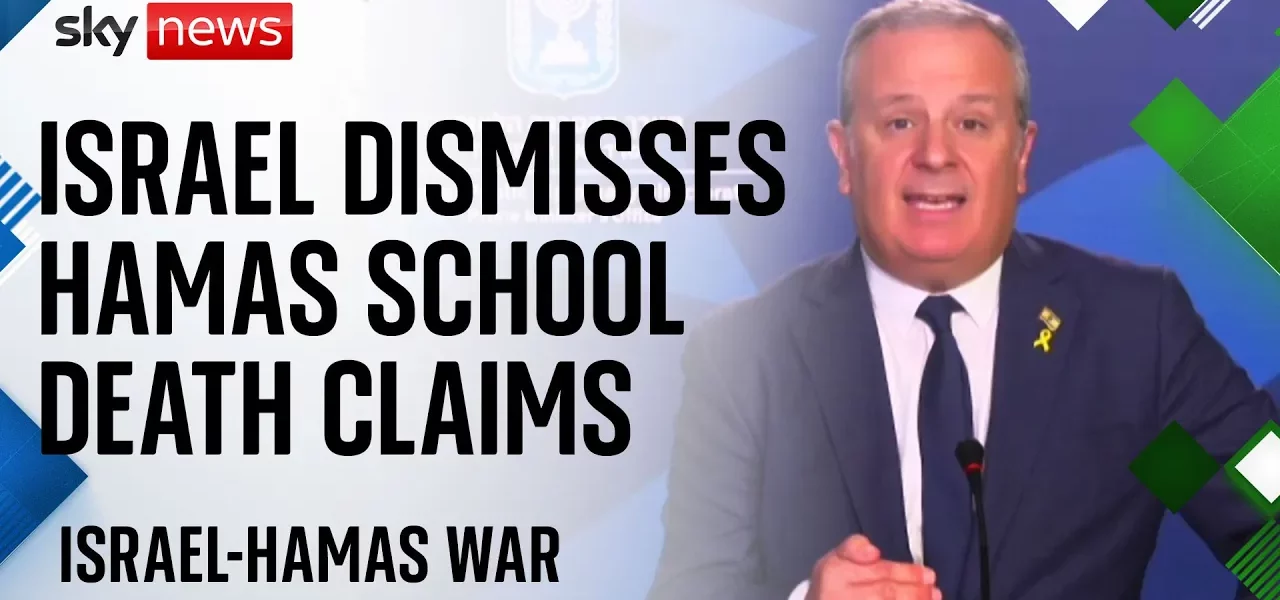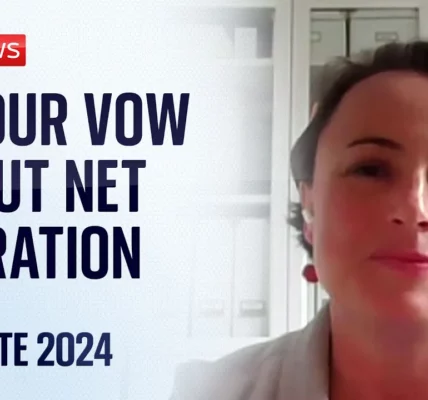Israeli Government Spokesman Discusses Ongoing Conflict and Military Strategy

This article delves into the complexities of the ongoing conflict involving Israel, Hamas, Hezbollah, and Iranian influence. It highlights the Israeli government’s perspective on terrorism, military strategy, and the pursuit of peace amidst rising tensions.
Introduction
The Israeli-Palestinian conflict remains one of the most contentious issues of our time, exacerbated by the involvement of regional powers such as Iran and militant organizations like Hamas and Hezbollah. In recent discussions, Israeli government spokesman David Mena emphasized the growing threats posed by these groups, characterizing them as part of a broader Iranian axis of evil that aims to destabilize Israel and undermine democratic values in the region. This article examines Mena’s insights and the implications for regional stability and peace efforts.
The Iranian Axis of Evil
Israeli government representatives have consistently articulated their views on Iran’s role in the conflict, referring to it as an “axis of evil.” This characterization encompasses not only Iran but also its proxies such as Hezbollah in Lebanon and Hamas in Gaza. The following subsections provide a detailed breakdown of this perspective.
Iran’s Hostility Towards Israel
Iran’s leadership has openly declared its animosity towards Israel, labeling it as the “small Satan.” This hostility is driven by ideological beliefs that reject the existence of Israel and promote anti-Western sentiments.
The Role of Proxy Groups
Hezbollah and Hamas serve as Iran’s proxies in the region, carrying out attacks on Israeli territory:
- Hezbollah operates primarily from Lebanon, conducting military operations against Israel.
- Hamas, based in Gaza, is responsible for numerous rocket attacks and incursions.
- Other militia groups in Yemen and elsewhere also contribute to the destabilization efforts against Israel.
The Israeli Stance on Military Engagement
In response to threats from these groups, Israel has adopted a firm military stance. David Mena articulated that the Israeli government will not tolerate aggression and will respond decisively to any threats against its citizens.
Military Strategy and Operations
Israel’s military operations are designed to neutralize threats while attempting to minimize civilian casualties, which is a challenging balance in densely populated areas. Key strategies include:
- Targeted operations against military leaders of Hamas and Hezbollah.
- Intelligence-driven strikes aimed at minimizing collateral damage.
- Communications to the public to clarify military objectives and actions.
Civilian Casualties and Humanitarian Concerns
One of the most contentious aspects of the conflict is the civilian casualties resulting from military operations. Mena emphasized that Hamas’s tactics often place civilians in harm’s way:
- Hamas utilizes civilian infrastructure for military purposes, complicating Israel’s military response.
- Every effort is made to avoid civilian casualties, but the realities of urban warfare make it challenging.
Despite these efforts, reports indicate that civilian casualties occur, leading to international scrutiny and calls for accountability.
Peace Negotiations and the Quest for Stability
Mena conveyed that while Israel seeks peace, it is also realistic about the challenges posed by its adversaries. The Israeli government remains committed to negotiating the release of hostages held by Hamas, viewing it as a moral and social imperative.
Hostage Situations and International Relations
The hostage crisis is a focal point for Israeli society, prompting calls for action from the government. Mena highlighted:
- The need for comprehensive military pressure to facilitate negotiations.
- The importance of international support in addressing the hostage situation.
Challenges to Peace Efforts
Negotiations are further complicated by conflicting narratives and the role of external influences, particularly from Iran:
- The Iranian regime’s support for militant groups undermines efforts for a peaceful resolution.
- Perceptions of Israel’s military actions often lead to negative international sentiment, hindering diplomatic initiatives.
Conclusion
In conclusion, the ongoing conflict involving Israel, Hamas, Hezbollah, and Iranian influence presents complex challenges for all parties involved. The Israeli government, represented by David Mena, remains steadfast in its military strategy while expressing a desire for peace. Understanding the nuances of this conflict is crucial for fostering dialogue and exploring viable paths to stability in the region. As the situation evolves, it is imperative for all stakeholders to engage critically and empathetically to work towards a sustainable resolution.
For further reading on the Israeli-Palestinian conflict and its implications, check out our related articles on regional dynamics and peace negotiations.
“`




